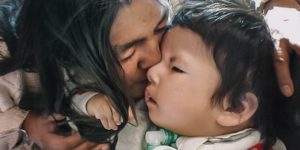Film on Jordan’s Principle debuts at Toronto International Film Festival

By Sam Laskaris
TORONTO – Though he only lived for five years, all of them spent in hospital, Jordan River Anderson managed to spark changes across Canada.
Jordan, who was from Manitoba’s Norway House Cree Nation, died in 2005 in a Winnipeg hospital, about 800 kilometres from his home community.
Jordan’s family would have preferred to have him close to home. But since he was Indigenous, disputes arose between the federal and provincial governments over who would pay for his health care expenses.
This controversial stance eventually led to Jordan’s Principle, granting Indigenous children the same access to health care as all other Canadian youth. It still took more than a decade, however, for this law to be fully implemented and enforced.
Jordan’s story and the ensuing aftermath is chronicled in Alanis Obomsawin’s latest documentary titled Jordan River Anderson, The Messenger.
It is one of five feature movies by Indigenous filmmakers from Canada at this year’s Toronto International Film Festival (TIFF).
The movie had its world premiere on Monday, during a press and industry screening held at Toronto’s Scotiabank Theatre.
The film was also scheduled to be shown four other times at TIFF, which began this past Thursday and continues until Sept. 5.
Obomsawin, an Abenaki filmmaker born in New Hampshire but primarily grew up in Canada, is no stranger to the movie industry.
Jordan River Anderson, The Messenger is the 53rd film that the 87-year-old has directed.
Jordan was born with a rare muscular disorder called Carey-Finerman-Ziter syndrome, which includes facial weakness or paralysis.
After spending the first couple of years of his life living at Children’s Hospital in Winnipeg, Jordan was given clearance to live in a home near the hospital. But the Canadian and Manitoba governments disagreed for a few years over who would pay for the required home care he would receive.
Jordan ended up dying in the hospital.
Obamsawin’s documentary includes footage of Jordan’s days in hospital and interviews with his family members. His mother, who had three older children, died six months after Jordan did.
The movie also includes scenes with other Indigenous families, who struggled to obtain the necessary care for their children simply because they lived on a First Nation.
Also included in the movie are Indigenous activists who battle to ensure Jordan’s Principles are enforced.
Jordan’s Principle was unanimously passed by the House of Commons of Canada in December of 2007.
The law stated that Indigenous children should not be denied access to necessary health care while government officials fight over the costs. The law also stipulated that the first government that was contacted is responsible to cover necessary health care expenses and then disputes over who pays what are to be settled later.
Since early 2018, the Anishinabek Nation has had two Jordan’s Principle Navigators, Christian Hebert and Tyler Waddilove.
Their duties include promoting Jordan’s Principle to families, communities and service providers. They also encourage families who feel their needs for their children are not being met to secure access to available support and services.
The navigators can also, if needed, submit requests for help.
Hebert is available by e-mail at: christian.hebert@anishinabek.ca or by phone at (705) 497-9127 ext. 2306.
And Waddilove can be reached at: tyler.waddilove@anishinabek.ca or by phone at (519) 280-3766.


